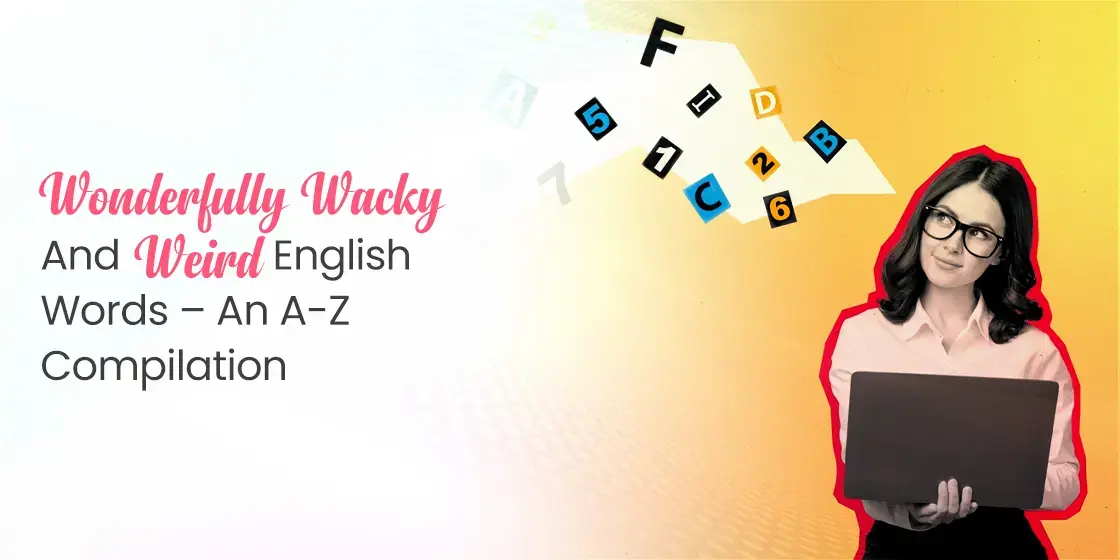Table of Content
Discover Some Amazingly Weird English Words to Give Your Content some Panache
The English language, a vibrant tapestry woven from the threads of various cultures, is a treasure trove of peculiar and perplexing words. Words that defy logic, challenge pronunciation, and leave us scratching our heads in bewilderment. These linguistic oddities, the weird English words often hidden in the dusty corners of dictionaries, add a touch of whimsy and wonder to our everyday conversations.
From the obscure to the downright bizarre, these words paint vivid pictures with their unusual meanings and quirky etymologies. They are the linguistic equivalent of a secret code, known only to a select few. By diving into the depths of the English lexicon, we can uncover a world of linguistic marvels that will spark curiosity and ignite imagination.
In this comprehensive A-Z compilation, we will embark on a journey through the labyrinth of weird words in the English language, exploring their origins, meanings, and potential applications. Whether you’re a word enthusiast, a writer seeking to add flair to your prose, or simply someone who enjoys the quirky side of language, this exploration promises to be a delightful and enlightening experience.
Weird English Words – What Makes Them So Weird in the First Place?
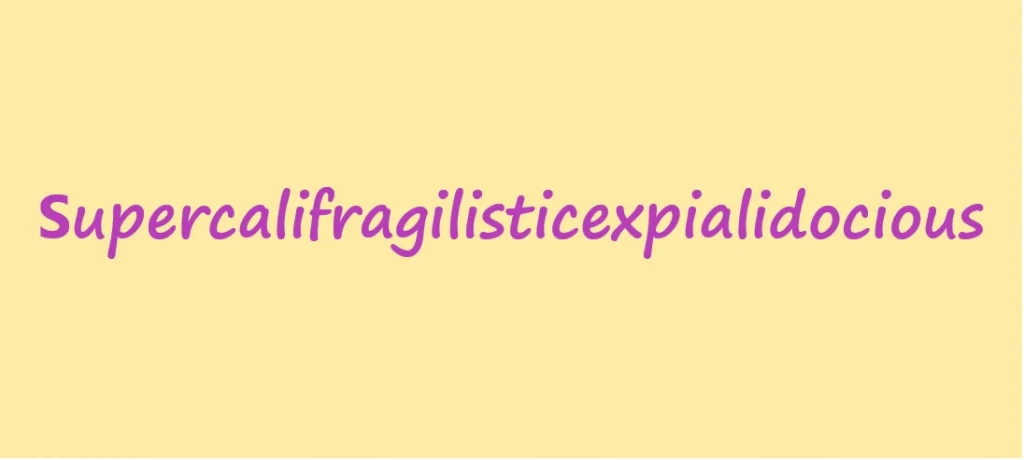
What exactly constitutes a “weird” English word? While there’s no definitive answer, certain characteristics tend to set these words apart from the ordinary. One common trait is their unusual pronunciation, often defying phonetic rules and challenging the tongue. Words like “pneumonoultramicroscopicsilicovolcanokoniosis” and “hippopotomonstrosesquippedaliophobia” are prime examples of this linguistic quirk.
Another factor that contributes to the weirdness of certain English words is their obscure or archaic meanings. Words like “diluvian” (relating to a great flood) and “quixotic” (exceedingly idealistic; unrealistic and impractical) may sound familiar but their precise definitions might be elusive to many.
Furthermore, some words owe their weirdness to their unique etymologies. Words like “gobbledygook” and “hocus-pocus” are believed to have originated from onomatopoeia, mimicking sounds associated with certain actions or objects. And these words are often used by many a professional content writing agency to give their content some character. Others, like “posh” are thought to be acronyms or abbreviations that have evolved into standalone words.
A Complete A-Z Compilation of Weird English Words and Their Meanings
Here is a comprehensive list of some of the top weird English words and what they mean, to help you lend a little interesting character to your prose, whether it’s for print or digital publications.
Weird English Words with A and Their Meanings
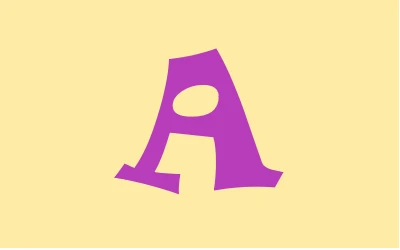
Abecedarian: Arranged in alphabetical order. A good example of an abecedarian work is a dictionary, where words are listed alphabetically for easy reference.
Acquiesce: To agree to something or to give in to someone’s wishes, often reluctantly or without enthusiasm.
Affable: Friendly, good-natured, easy to talk to. Affable people are pleasant and easy to get along with. They are often described as having a warm and welcoming personality. For example, “The affable host made everyone feel at ease.”
Agnostic: A person who believes that the existence or nature of God is unknown or unknowable. Agnostics often emphasize the limits of human knowledge and the importance of evidence-based reasoning. They may hold various views on spirituality, morality, and the meaning of life, but they do not claim to know whether God exists or not.
Alacrity: Eagerness, briskness, and cheerful readiness. Alacrity implies a sense of enthusiasm and promptness in action. For example, “She accepted the challenge with alacrity.”
Weird English Words with B and Their Meanings

Bellicose: Tending to argue or fight; quarrelsome. A bellicose person is often aggressive and ready to pick a fight. For example, “The bellicose neighbor was always arguing with someone.”
Burlesque: A comic imitation of a serious work, often characterized by satire, irony, and parody. Burlesque can take many forms, including literature, theater, film, and music. In theater, burlesque often involves exaggerated physical comedy, slapstick humor, and bawdy humor. Today, burlesque is still performed, often with a focus on female empowerment and body positivity.
Byzantine: Extremely intricate and complex, often in a way that is difficult to understand.
Balderdash: Nonsense, senseless talk or writing. Balderdash is often used to describe something that is absurd, illogical, or nonsensical. It can also be used to describe something that is simply silly or foolish. For example, “The politician’s speech was nothing but balderdash.” Balderdash can also be used as a verb, meaning to talk nonsense or to write nonsense.
Bedlam: A scene of noisy confusion and disorder, especially a noisy and chaotic situation.
Weird English Words with C and Their Meanings
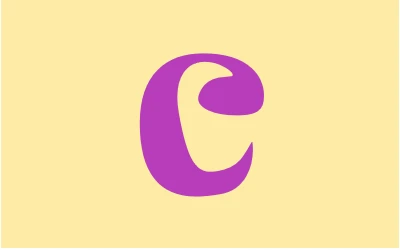
Cacophony: A harsh, discordant, and unpleasant mixture of sounds. A cacophony can be created by a variety of sources, such as a noisy crowd, a busy street, or a poorly tuned orchestra. It can also be used to describe a chaotic or disorganized situation. For example, “The market was a cacophony of noise and color.”
Capricious: Given to sudden and unaccountable changes of mood or behavior. A capricious person is often unpredictable and impulsive. They may change their mind frequently or act without thinking. For example, “The capricious boss was impossible to please.”
Catharsis: The process of releasing, and thereby providing relief from, strong or repressed emotions. Catharsis is often achieved through art, music, literature, or other creative outlets. It can also be experienced through physical activity, such as exercise or sports. For example, “Writing in a journal can be a cathartic experience.”
Chicanery: Deception by trickery. Chicanery is often used to describe dishonest or unethical behavior. It can involve using clever or deceptive tactics to achieve one’s goals. For example, “The politician used chicanery to win the election.” However, despite its negative connotations, it is considered one of the more obscure funny words in the English language.
Circumlocution: The use of many words where fewer would do, especially in a deliberate attempt to evade or obscure. Circumlocution is often used to avoid being direct or honest. It can also be used to make something seem more important or complex than it really is. For example, “Instead of saying ‘no,’ the politician used circumlocution to avoid answering the question.”
Weird English Words with D and Their Meanings
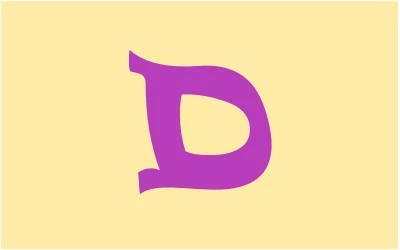
Diluvian: Relating to a great flood. A diluvian event is one that is characterized by a large amount of water, such as a flood or a torrential downpour. The word “diluvian” is often used to describe something that is overwhelming or destructive. For example, “The diluvian rains caused widespread flooding.”
Discombobulated: Confused and agitated. A discombobulated person is often flustered and unable to think clearly. For example, “The unexpected news left her discombobulated.”
Draconian: Extremely harsh and severe. Draconian laws or punishments are often considered to be excessively cruel or punitive. For example, “The dictator imposed draconian measures on the population.”
Dulcet: Sweet and soothing. A dulcet sound or voice is pleasant to listen to. For example, “The singer’s dulcet tones filled the room.”
Dysfunctional: Not operating normally or properly. A dysfunctional family or organization is one that is characterized by conflict, poor communication, and a lack of cooperation. For example, “The dysfunctional family struggled to cope with the crisis.”
Weird English Words with E and Their Meanings
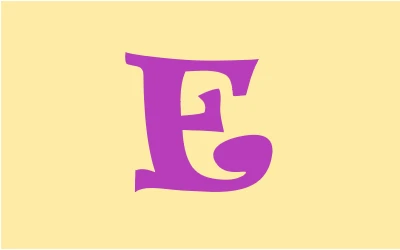
Ebullient: Cheerful and full of energy. An ebullient person is often enthusiastic and outgoing. They may be described as bubbly or effervescent. For example, “The ebullient child ran around the playground, laughing and playing.”
Effervescent: Vivacious and enthusiastic. An effervescent person is often bubbly and full of energy. They may be described as bubbly or ebullient. For example, “The effervescent host kept the party lively.”
Equivocal: Open to more than one interpretation; ambiguous. An equivocal statement is one that can be understood in more than one way. It may be deliberately vague or unclear. For example, “The politician’s equivocal answer did not satisfy the reporters.”
Exacerbate: Make (a problem, bad situation, or negative feeling) worse. To exacerbate something is to make it worse. For example, “The loud noise exacerbated the headache.”
Exigent: Urgent; pressing. An exigent matter is one that requires immediate attention. For example, “The exigent situation required immediate action.”
Weird English Words with F and Their Meanings
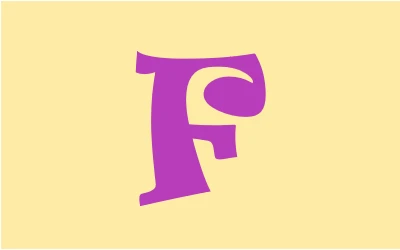
Facetious: Playful and humorous, often in a way that is not entirely serious. A facetious remark is often intended to be funny or amusing, but it can also be sarcastic or ironic. For example, “I’m so glad I won the lottery,” said the facetious man who had just lost his job.
Fastidious: Very attentive to and concerned about accuracy and detail. Fastidious people are often perfectionists who strive for excellence in everything they do. For example, a fastidious editor can help to ensure that a book or article is free of errors.
Florid: Excessively elaborate, ornate, or showy. A florid style of writing or speech is characterized by a lot of unnecessary detail or decoration. It can be difficult to follow and may be considered pretentious. For example, “The politician’s florid speech was full of empty rhetoric.”
Fortuitous: Happening by chance rather than by plan. A fortuitous event is one that is unexpected and often positive. It can be a lucky break, a happy coincidence, or a stroke of good fortune. For example, “It was fortuitous that I ran into my old friend at the bookstore.”
Fumigate: To expose (something) to fumes of a disinfectant or pesticide. Fumigation is a process of using chemicals to kill pests, such as insects, rodents, and bacteria. It is often used in homes, businesses, and other buildings to control infestations.
Weird English Words with G and Their Meanings
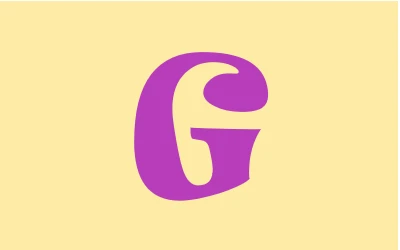
Garbled: Confused and unintelligible. A garbled message is one that is difficult to understand because it is unclear or distorted. For example, “The garbled message on the answering machine was impossible to decipher.”
Gregarious: Fond of company; sociable. A gregarious person is outgoing and enjoys spending time with others. They often have a large circle of friends and are always up for socializing. For example, “The gregarious host welcomed everyone with open arms.”
Gullible: Easily persuaded to believe something. A gullible person is easily tricked or deceived. They may be too trusting or naive. For example, “The gullible man fell for the scam.”
Gyrate: Move rapidly in a circle. To gyrate is to spin or whirl around. For example, “The dancer’s body gyrated to the beat of the music.”
Garrulous: Excessively talkative, especially on trivial matters. A garrulous person talks a lot, often about unimportant things. They can be annoying to listen to. For example, “The garrulous old man talked for hours about the weather.”
Weird English Words with H and Their Meanings
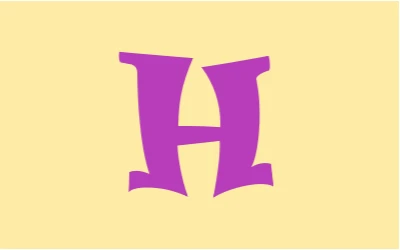
Harbinger: A person or thing that announces or signals the approach of another. A harbinger is a sign or warning of something that is going to happen. For example, “The dark clouds were a harbinger of a storm.” It is one of the more common power words in fantasy writing these days.
Hedonist: A person who believes that the pursuit of pleasure is the most important thing in life. A hedonist is someone who is focused on pleasure and self-indulgence. They may prioritize physical and sensory pleasures over other things, such as work or relationships. For example, “The hedonist spent all day lounging by the pool.”
Hoi polloi: The common people; the masses. The hoi polloi is a term used to refer to ordinary people, as opposed to the elite or upper class.
Hubris: Excessive pride or self-confidence. Hubris is often associated with arrogance and a sense of superiority. It can lead to downfall or misfortune. For example, “The hero’s hubris led to his tragic demise.”
Hypocrisy: The practice of claiming to have moral standards or beliefs to which one’s own behavior does not conform. Hypocrisy is often associated with dishonesty and insincerity. For example, “The politician’s hypocrisy was exposed when his secret affair was revealed.”
Weird English Words with I and Their Meanings
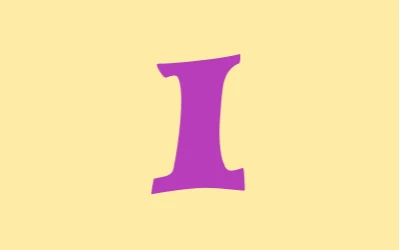
Idiosyncratic: Peculiar or unusual. Idiosyncratic behavior or habits are unique to a particular person. They may be quirky or eccentric. For example, “The artist had many idiosyncratic habits, such as painting only in moonlight.”
Imbroglio: A complicated situation, especially one in which many people are involved. An imbroglio is a complex and confusing situation, often involving a dispute or disagreement. For example, “The political imbroglio led to weeks of uncertainty.”
Impecunious: Having little or no money. An impecunious person is poor or without money. For example, “The impecunious student struggled to pay for tuition.”
Incipient: Just beginning to exist or appear. An incipient problem or trend is one that is just starting to develop. For example, “The incipient crisis required immediate attention.”
Insouciant: Casual and carefree. An insouciant person is relaxed and unconcerned. They may seem indifferent or aloof. For example, “The insouciant teenager strolled down the street, whistling a tune.”
Weird English Words with J and Their Meanings

Jocular: Fond of joking; humorous. A jocular person is often playful and lighthearted. They enjoy making jokes and having fun. For example, “The jocular host kept the party lively with his witty remarks.”
Jubilant: Feeling or expressing great happiness and triumph. A jubilant person is overjoyed and excited. They may be celebrating a victory or achievement. For example, “The team was jubilant after winning the championship.”
Juxtaposition: The fact of two things being seen or placed together with contrasting effect. Juxtaposition is a literary technique often used in physical and digital copywriting that involves placing two contrasting ideas or images side by side. It can be used to create irony, humor, or emphasis. For example, “The juxtaposition of the old and the new in the city was striking.”
Jejune: Naive, simplistic, and superficial. A jejune idea or argument is lacking in substance or depth. It may be childish or immature. For example, “The politician’s jejune speech failed to impress the audience.”
Jocund: Cheerful and lighthearted. A jocund person is cheerful and happy. They often have a positive outlook on life. For example, “The jocund old man was always smiling.”
Weird English Words with K and Their Meanings
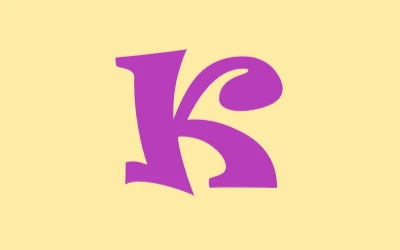
Kismet: Fate; destiny. Kismet is the idea that events are predetermined and inevitable. It is often used to describe a chance encounter or a lucky coincidence. For example, “It was kismet that we met at that coffee shop.”
Knavery: Dishonesty; deceitfulness. Knavery is a form of dishonesty or trickery. It can involve lying, cheating, or stealing. For example, “The villain’s knavery led to his downfall.”
Kowtow: Submit meekly or obsequiously to authority. To kowtow is to submit to someone’s authority in a servile or submissive way. For example, “The employee kowtowed to his boss.”
Kudos: Praise and honor received for an achievement. Kudos is a word of praise or admiration. It is often used to congratulate someone on a job well done. For example, “Kudos to the team for their hard work.”
Kafkaesque: Absurdly complex and frustrating. A Kafkaesque situation is one that is bizarre, confusing, and oppressive. It is often associated with bureaucracy and authoritarianism. For example, “The Kafkaesque bureaucracy made it difficult to get a simple permit.”
Weird English Words with L and Their Meanings
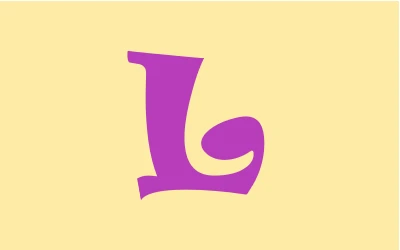
Laconic: Using very few words. A laconic person is brief and to the point in their speech. For example, “The laconic reply left no room for further discussion.”
Lassitude: A state of physical or mental weariness; lack of energy. Lassitude can be caused by fatigue, boredom, or illness. For example, “After a long day at work, I felt a sense of lassitude.”
Lucubration: Intense study or thought. Lucubration often involves late-night work or scholarly research. For example, “The professor’s lucubrations led to a groundbreaking discovery.”
Luminary: A person who is famous or influential in a particular field. A luminary is often a respected expert or leader. For example, “The luminary author gave a fascinating lecture.”
Lugubrious: Excessively sad or mournful. A lugubrious person is often gloomy or depressed. For example, “The lugubrious poet wrote sad and somber poems.”
Weird English Words with M and Their Meanings
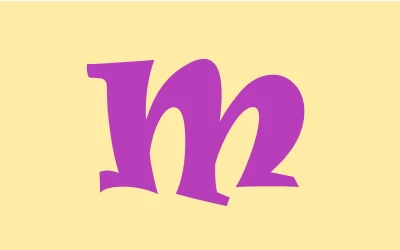
Magnanimous: Generous or forgiving, especially toward a rival or less powerful person. A magnanimous person is noble and generous. They are often willing to forgive and forget. For example, “The magnanimous king pardoned the rebels.”
Maverick: An independent-minded person who does not conform to a group or party. A maverick is someone who thinks for themselves and is not afraid to go against the grain. For example, “The maverick politician refused to follow the party line.”
Mellifluous: Pleasingly smooth and musical. A mellifluous voice or sound is pleasant to listen to. For example, “The singer’s mellifluous voice captivated the audience.”
Misanthropic: Disliking humankind and avoiding human society. A misanthropic person is often cynical and pessimistic. They may believe that people are inherently selfish and evil. For example, “The misanthropic hermit lived alone in the woods.”
Morose: Sullen and ill-tempered. A morose person is often gloomy and depressed. They may be difficult to be around. For example, “The morose teenager refused to talk to anyone.”
Weird English Words with N and Their Meanings
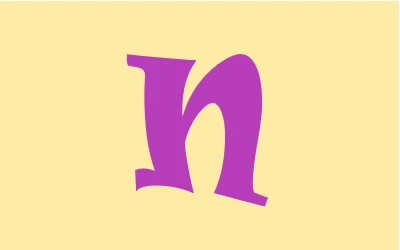
Nihilistic: Believing in the doctrine that nothing exists or that nothing is knowable. A nihilist is someone who believes that life is meaningless and that there is no ultimate purpose.
Nostalgic: Pleasantly sentimental about the past. A nostalgic person often longs for the past and feels a sense of longing or sadness. For example, “The old woman was nostalgic for her childhood.”
Nuance: A subtle difference in or shade of meaning, expression, or sound. Nuance is often used to describe subtle differences in language or art. For example, “The poet’s use of nuance created a powerful effect.”
Nefarious: Wicked or criminal. A nefarious act is one that is morally wrong or illegal. For example, “The villain’s nefarious plan was thwarted by the hero.”
Nimble: Quick and agile. A nimble person is quick and graceful in their movements. For example, “The nimble dancer leaped and twirled across the stage.”
Weird English Words with O and Their Meanings

Obsequious: Obedient or attentive to an excessive degree. An obsequious person is overly submissive and eager to please. For example, “The obsequious servant bowed and scraped before the king.”
Obstreperous: Noisy and difficult to control. An obstreperous person is unruly and disruptive. For example, “The obstreperous child refused to go to bed.”
Onerous: Involving an unpleasant effort or burden. An onerous task is difficult or burdensome. For example, “The onerous task of cleaning the house took all day.”
Opulent: Luxuriously furnished. An opulent room or house is lavish and extravagant. For example, “The opulent mansion was filled with priceless art and antiques.”
Oxymoron: A figure of speech in which apparently contradictory terms appear in conjunction. An oxymoron is a phrase that combines two contradictory terms. For example, “bittersweet,” “jumbo shrimp,” and “deafening silence” are all oxymorons.
Weird English Words with P and Their Meanings
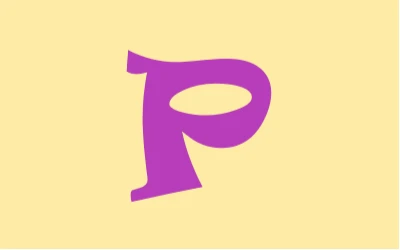
Petulant: Childishly sulky or bad-tempered. A petulant person is often whiny and complaining. For example, “The petulant child stomped his foot and refused to eat his dinner.”
Philanthropic: Generous in donating to good causes. A philanthropic person is charitable and gives to those in need. For example, “The philanthropic billionaire donated millions to charity.” It is also among the most common resume adjectives used today.
Phlegmatic: Having an unemotional and calm disposition. A phlegmatic person is often slow-moving and unemotional. For example, “The phlegmatic man rarely showed any emotion.”
Pragmatic: Dealing with things sensibly and realistically in a way that is based on practical rather than theoretical considerations. A pragmatic person is practical and down-to-earth. They focus on solving problems and achieving results. For example, “The pragmatic approach to the problem was to simply fix what was broken.”
Prodigal: Spending money or resources freely and wastefully. A prodigal person is extravagant and wasteful. For example, “The prodigal son squandered his inheritance.”
Weird English Words with Q and Their Meanings
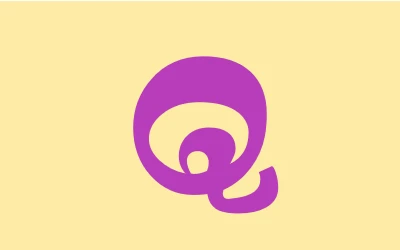
Quixotic: Exceedingly idealistic; unrealistic and impractical. A quixotic person is idealistic and unrealistic. They often pursue unrealistic goals. For example, “The quixotic knight tilted at windmills.”
Quotidian: Occurring daily. Quotidian events are ordinary and routine. For example, “The quotidian tasks of life can be mundane.”
Weird English Words with R and Their Meanings

Rancorous: Bitter and resentful. A rancorous person is full of hatred and resentment. For example, “The rancorous argument ended in a shouting match.”
Raucous: Making or characterized by a loud and unpleasant noise. A raucous crowd is noisy and disorderly. For example, “The raucous party kept the neighbors awake all night.”
Refudiate: A portmanteau of “refute” and “repudiate,” meaning to strongly deny or reject.
Rhetorical: Relating to the art of effective or persuasive speaking or writing. A rhetorical question is a question asked for effect, not to elicit an answer.
Ruminate: Think deeply about something. To ruminate is to ponder or meditate on a subject. For example, “The philosopher ruminated on the meaning of life.”
Weird English Words with S and Their Meanings

Sanguine: Optimistic or positive, especially in an apparently bad or difficult situation. A sanguine person is cheerful and hopeful. For example, “The sanguine leader inspired hope in the people.”
Sardonic: Grimly mocking or cynical. A sardonic person is scornful and mocking. For example, “The sardonic comedian made fun of politicians.”
Serendipity: The occurrence and development of events by chance in a happy or beneficial way. Serendipity is the accidental discovery of something valuable or interesting. For example, “The discovery of penicillin was a stroke of serendipity.”
Soporific: Tending to induce sleep. A soporific substance or activity is one that causes drowsiness. For example, “The warm, cozy bed had a soporific effect.”
Sycophantic: Obsequiously flattering; fawning. A sycophantic person is overly flattering and submissive. For example, “The sycophantic courtier praised the king’s every word.”
Weird English Words with T and Their Meanings
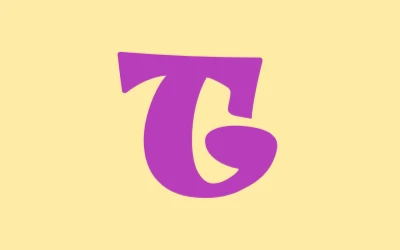
Taciturn: Reserved or uncommunicative in speech; saying little. A taciturn person is quiet and reserved. For example, “The taciturn librarian rarely spoke.”
Temporal: Relating to time, as opposed to eternity. Temporal concerns are related to the present moment or the near future. For example, “Temporal power is often fleeting.”
Tirade: A long, angry speech of criticism or accusation. A tirade is a passionate and intense outburst. For example, “The politician launched into a tirade against his opponent.”
Torrid: Passionately intense. A torrid love affair is passionate and intense. For example, “The couple had a torrid romance.”
Turbulent: Characterized by conflict and disorder. A turbulent time is one that is chaotic and unstable. For example, “The country was going through a turbulent period.”
Weird English Words with U and Their Meanings

Ubiquitous: Present, appearing, or found everywhere. A ubiquitous thing is widespread and common. For example, “Smartphones have become ubiquitous.”
Umbrage: Offense or annoyance. To take umbrage is to be offended or insulted. For example, “She took umbrage at his rude remark.”
Uncanny: Strange or mysterious, especially in an unsettling way. An uncanny experience is strange and inexplicable. For example, “The uncanny feeling of being watched made her uneasy.”
Unctuous: Excessively flattering; oily. An unctuous person is overly flattering and insincere. For example, “The unctuous salesman tried to persuade me to buy the product.”
Usurp: Take (a position of power) illegally or by force. To usurp is to seize power illegally. For example, “The ambitious general usurped the throne.”
Weird English Words with V and Their Meanings

Vacuous: Having or showing a complete absence of intelligence or ideas; stupid. A vacuous person is empty-headed and foolish. For example, “The vacuous celebrity gave a nonsensical interview.”
Verbose: Using or expressed in more words than are needed. A verbose person is wordy and long-winded. For example, “The verbose professor’s lectures were often boring.”
Vexatious: Causing irritation or annoyance. A vexatious problem is difficult and frustrating. For example, “The vexatious issue of climate change continues to challenge the world.”
Vicarious: Experienced or felt indirectly. A vicarious experience is one that is experienced through someone else. For example, “She felt a vicarious thrill as she watched her favorite sports team win.”
Volatile: Liable to change rapidly and unpredictably, especially for the worse. A volatile situation is unstable and dangerous. For example, “The volatile political situation led to protests and riots.”
Weird English Words with W and Their Meanings

Wanton: (Of a cruel or violent act) deliberate and unprovoked. A wanton act is one that is malicious and unjustified. For example, “The wanton destruction of the forest was a tragedy.”
Whimsical: Playful and fanciful. A whimsical person is often imaginative and unconventional. For example, “The whimsical artist painted colorful and abstract pictures.”
Wistful: Having or showing a feeling of pensive longing or melancholy. A wistful person is often sad or longing for something. For example, “She gazed wistfully at the old photo album.”
Wrathful: Feeling or characterized by intense anger. A wrathful person is very angry. For example, “The wrathful god punished the mortals.”
Wry: Using or expressing dry, ironic humor. A wry comment is one that is humorous in a sarcastic or ironic way. For example, “He gave a wry smile and said, ‘That’s just great.'”
Weird English Words with X and Their Meanings

Xenophobia: Intense or irrational dislike or fear of people from other countries. Xenophobia is a fear or hatred of foreigners. For example, “The xenophobic politician made inflammatory remarks about immigrants.”
Xeriscape: Landscape design requiring little or no supplemental water. Xeriscaping is a type of landscaping that uses drought-tolerant plants. For example, “The xeriscaped garden required minimal watering.”
Weird English Words with Y and Their Meanings

Yearn: Have an intense and often painful longing for something. To yearn is to desire something strongly. For example, “She yearned for a simpler time.”
Yonder: In that place or direction. Yonder is often used to point to something distant. For example, “Look yonder, what is that?”
Yore: Former times. Yore refers to the past. For example, “In days of yore, people lived simpler lives.”
Youthful: Young or characteristic of youth. A youthful person is young and energetic. For example, “The youthful athlete was full of energy.”
Yuppie: A young urban professional. A yuppie is a young, well-educated person who works in a professional job and lives in a city.
Weird English Words with Z and Their Meanings
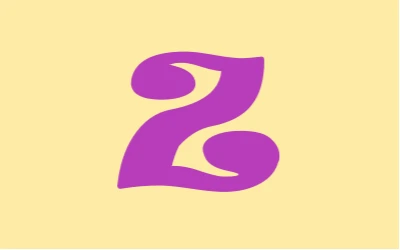
Zealous: Having or showing zeal. A zealous person is enthusiastic and passionate. For example, “The zealous activist fought for social justice.”
Zenith: The highest point reached by a celestial object. Zenith can also refer to the peak or climax of something. For example, “The singer’s career reached its zenith in the 1980s.”
Zephyr: A gentle, mild wind. A zephyr is a light, refreshing breeze. For example, “The zephyr cooled the summer air.”
Zoomorphic: Having or resembling the form of an animal. A zoomorphic design features animal motifs. For example, “The ancient culture created zoomorphic pottery.”
Zymotic: Relating to or caused by a disease, especially one that is epidemic. A zymotic disease is contagious. For example, “The zymotic fever spread rapidly through the town.”
Using Weird English Words to Give Your Prose Character – Why is Important?
Incorporating unusual and uncommon words into your writing can elevate your prose to new heights. It adds a layer of sophistication, nuance, and individuality to your work. By using precise and evocative language, you can paint vivid pictures in the minds of your readers and create a more immersive reading experience.
Furthermore, employing weird English words can help you to stand out from the crowd. In a world saturated with generic and formulaic writing, using unique and distinctive language can make your work more memorable and engaging. It can also demonstrate your erudition and your command of the language, impressing your readers and enhancing your credibility.
However, it’s important to use weird words judiciously. Overusing them can make your writing sound pretentious or overly complex. The key is to strike a balance between clarity and creativity. By carefully selecting and strategically placing these words, you can add a touch of literary flair without sacrificing readability.
Conclusion
The English language is a vast and ever-evolving entity, filled with countless linguistic treasures. By exploring the realm of weird English words, we can unlock a world of unexpected beauty and complexity. These words, with their peculiar pronunciations, obscure meanings, and fascinating etymologies, offer a unique opportunity to enhance our writing and broaden our vocabulary.
So, the next time you’re looking to add a touch of whimsy or sophistication to your prose, or looking to create some unique gifts for writers you know, don’t be afraid to delve into the dictionary and unearth some linguistic gems. After all, the English language is full of surprises, and there’s always something new to discover.

Unleash your brand story`s potential with eContentSol – your creative writing companion. We craft narratives that captivate. Ready to elevate your content game? Dive into creativity with us and let`s bring your ideas to life.
